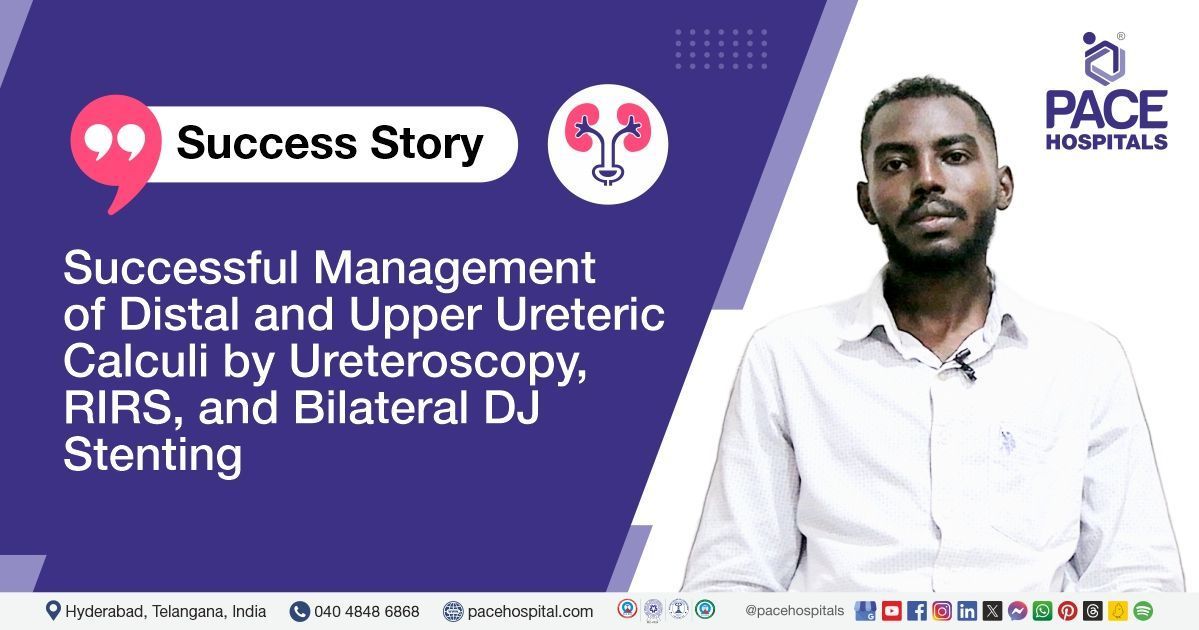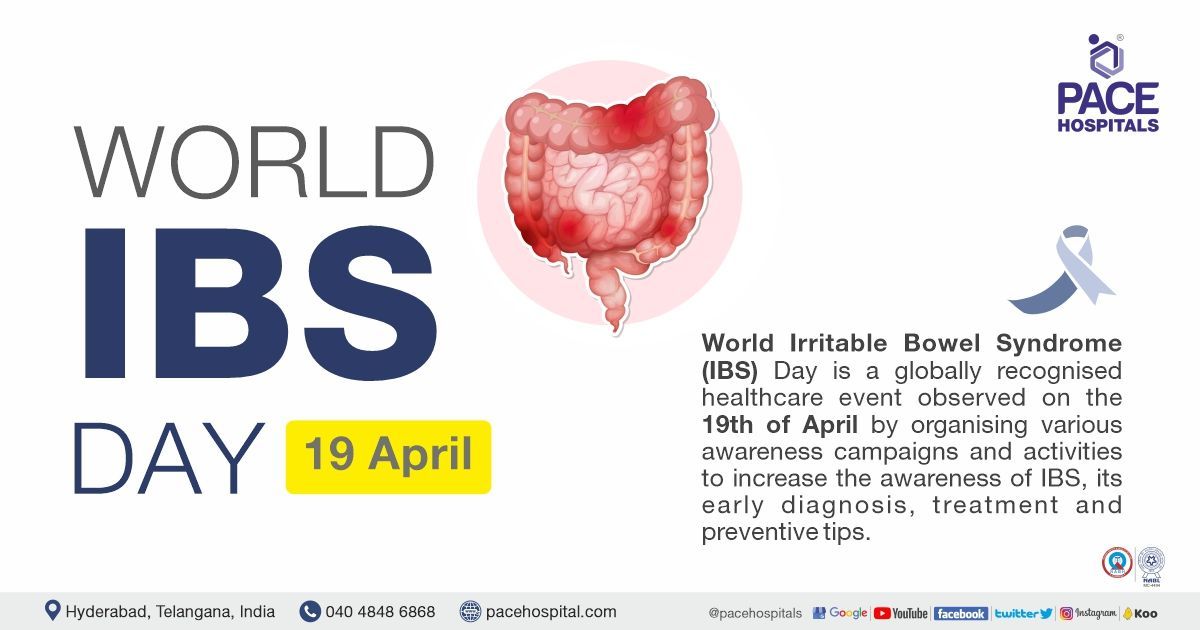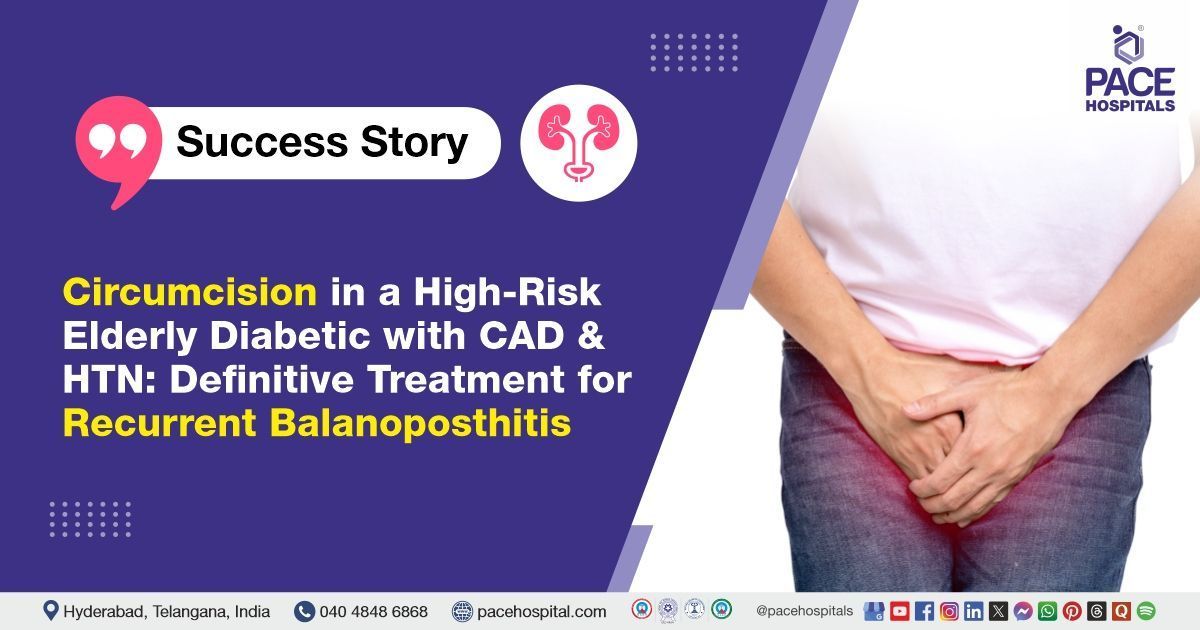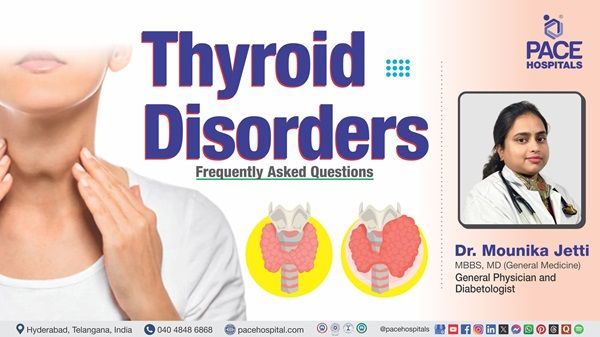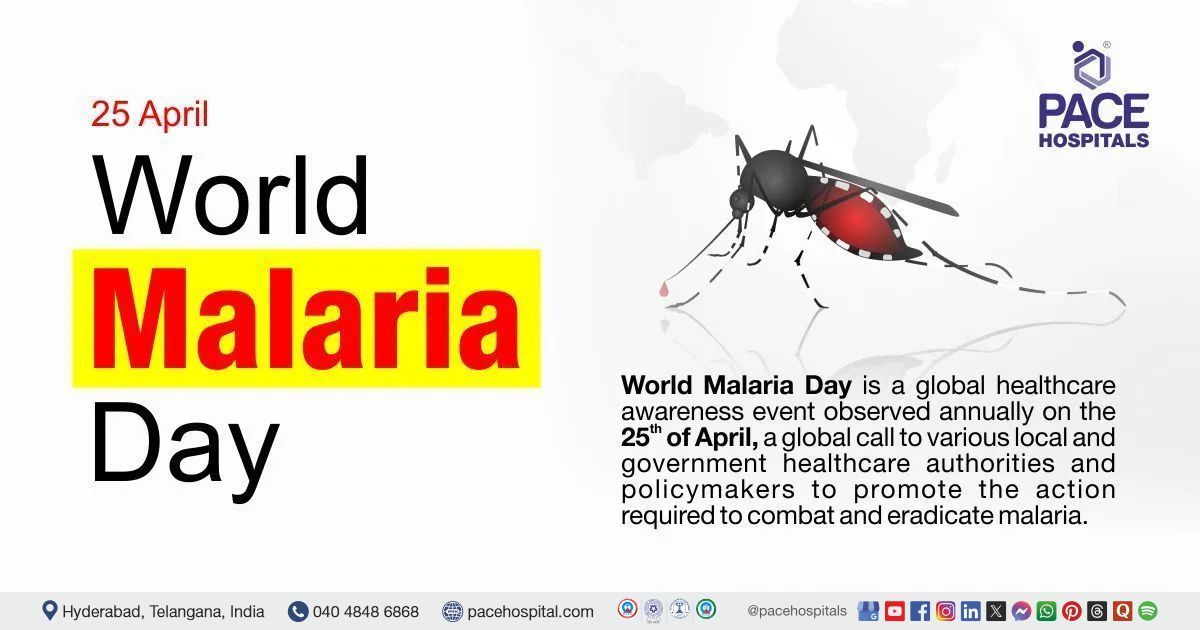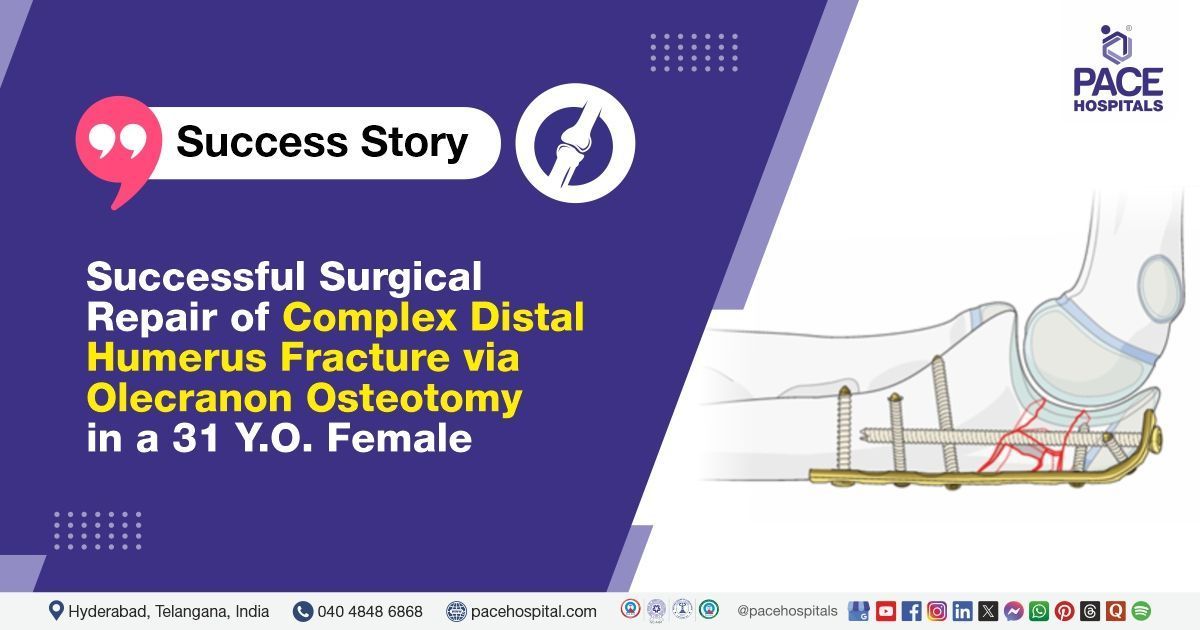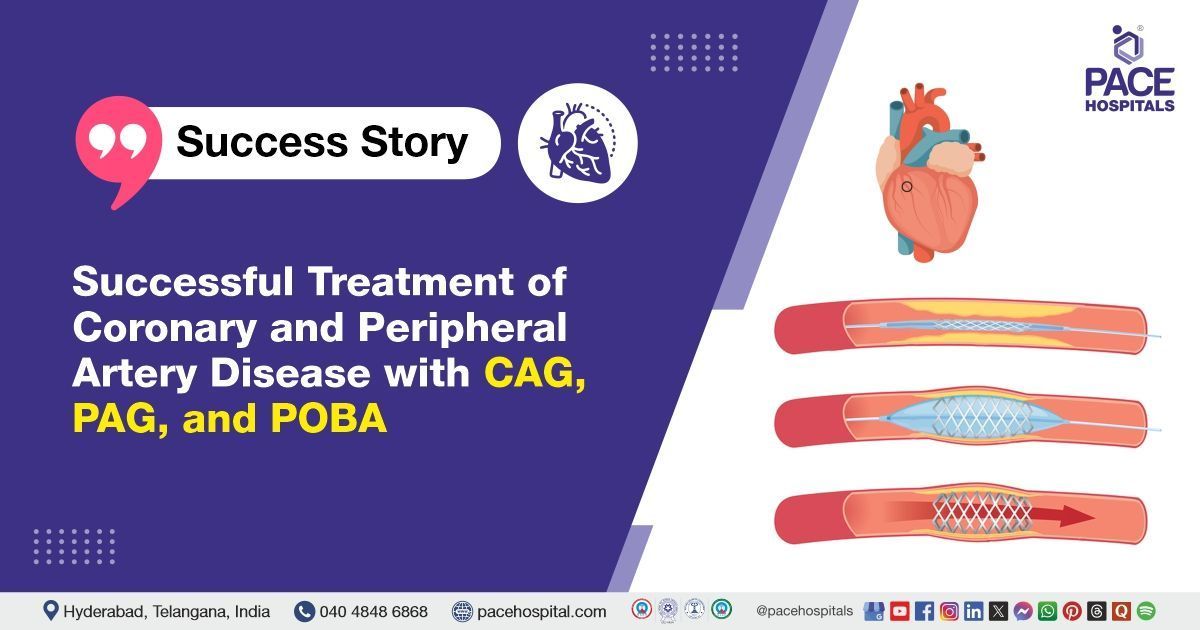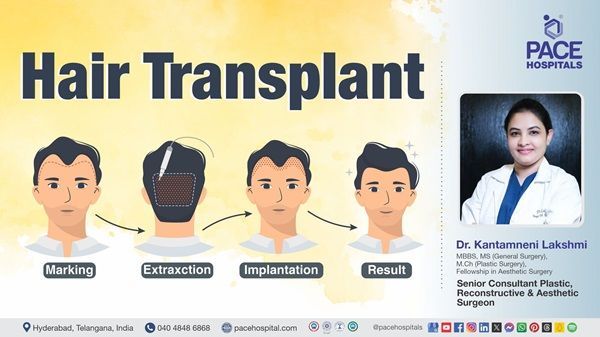Successful Management of Distal and Upper Ureteric Calculi by Ureteroscopy, RIRS, and Bilateral DJ Stenting
PACE Hospitals' Urology team successfully performed a right ureteroscopy (URS), left retrograde intrarenal surgery (RIRS), and bilateral DJ stenting for a 24-year-old male with bilateral flank pain.
A 24-year-old male patient with a complaint of bilateral flank pain (pain in the side of the body between the upper abdomen and the back, beneath the rib cage, and above the hip) was presented to the consultant laparoscopic urologist, Dr Abhik Debnath, at PACE Hospitals, Hitech City, Hyderabad.
Medical History
Delving deeper, it was understood that the patient had a complaint of bilateral flank pain (pain in the sides of the body between the upper abdomen and the back, beneath the rib cage, and above the hip) which led to his admission to PACE Hospitals for additional care and management.
Diagnosis
Upon being admitted to PACE Hospitals and understanding the history and physical examination, the patient was subjected to a computed tomography (CT) scan which showed right vesico-ureteric junction (VUJ) 2 mm calculus and left upper ureteric 8 mm calculus. Evaluating the diagnostic investigations, the patient was diagnosed with a right distal ureteric calculus and left upper ureteric calculus.
Treatment
After consultations with the consultant laparoscopic urologist - Dr. Abhik Debnath, it was determined that right ureteroscopy (URS), left retrograde intrarenal surgery (RIRS), and bilateral DJ stenting were the effective methods for treating the patient.
Ureteroscopy is an approach for treating kidney stones that includes passing a small telescope, known as a ureteroscope, via the urethra and bladder up the ureter to the stone's location.
In this patient the urologist performed a 6/7.5 right ureteroscopy (URS), to remove the right distal ureteric calculus(stone).
Then, sheathless left retrograde intrarenal surgery (RIRS) was performed to treat the left upper ureteric calculus. This minimally invasive procedure removes kidney stones; during the surgery, a type of viewing tube known as a fiberoptic endoscope is passed through the kidney. Because the fiberoptic is flexible, it may readily bend within the renal system and can easily enter the kidney and ureter.
Complete fragmentation was done with 200-micron holmium: yttrium-aluminum-garnet (Ho: YAG) laser fiber at 1 J 10 Hz. No mucosal injury was noted at the end of the surgery.
After the stones were removed, 5Fr 26 cm stents were inserted in both ureters to keep them open and allow urine to flow freely while the patient recovered.
Before the surgery, the urologist checked the routine pre-operative investigations (which were done at an outside hospital) that included a complete blood picture (CBP), viral screening spot, blood grouping, complete urine examination, random blood sugar, serum creatinine, serum electrolytes, prothrombin time, activated partial thromboplastin time and liver function tests (LFT) to look for abnormalities and they were normal.
Performing and assessing these investigations before the surgery ensures that the urologists have a comprehensive understanding of the patient's condition and anatomy, which guides them in performing the surgery effectively and helps reduce the risk of complications.
With necessary investigations completed & clearances obtained, which included a pre-anesthesia checkup, the patient underwent right ureteroscopy (URS), left retrograde intrarenal surgery (RIRS), and bilateral DJ stenting under general anesthesia. The procedure was supervised by the consultant laparoscopic urologist - Dr Abhik Debnath and it was accomplished without any complications.
Aftermath
The post-operative period was uneventful. The necessary medicines, antibiotics, multivitamins, analgesics, antipyretics, and other supportive care were given along with the counseling. The patient was discharged upon achieving hemodynamic stabilization, with the necessary medications, and advised to continue routine medications and, plenty of fluids (4-5 liters per day) low purine and low salt diet, and citrus fruits and juices. The patient was advised to avoid weightlifting, forward bending, and strenuous exercises.
The patient was also instructed to contact
PACE Hospitals' emergency ward in case of fever, abdominal pain, or vomiting. After 3 months, the patient was asked to get a review by Dr. Abhik Debnath in the urology outpatient department (OPD) for DJ stent removal and cystoscopy.
Ureteroscopy: Advancements and Benefits in Urological Surgery
Ureteroscopy is an important procedure in urology and is recognized as the primary surgical method for treating kidney and ureter stones. Urologists also use ureteroscopy to treat kidney and ureteral calculi with lasers. This flexible treatment is also a valuable diagnostic and therapeutic tool for upper urinary tract lesions such as ureteral strictures and urothelial carcinomas.
With advancements in ureteroscope and camera miniaturization, improved optical systems, digital video capability, laser lithotripsy, smaller ureteral stone baskets, and enhanced visualization with dual working channels that allow for continuous pressurized irrigation, ureteroscopy has attained the imaging capability, reliability, versatility, precision, and safety required to become an essential component of modern urological practice. Ureteroscopy is a frequent procedure for diagnosing and treating kidneys and ureteral stones,
ureteral strictures, and urothelial carcinoma (cancer). Importantly, its evolution has occurred with the advancement of holmium laser technology, which may be employed in rigid, semi-rigid, and flexible ureteroscopes. Urological lasers can efficiently fragment all types of stones and treat urothelial tumors through vaporization or ablation.
Share on
Request an appointment
Fill in the appointment form or call us instantly to book a confirmed appointment with our super specialist at 04048486868

